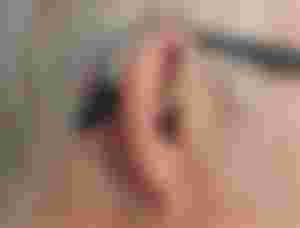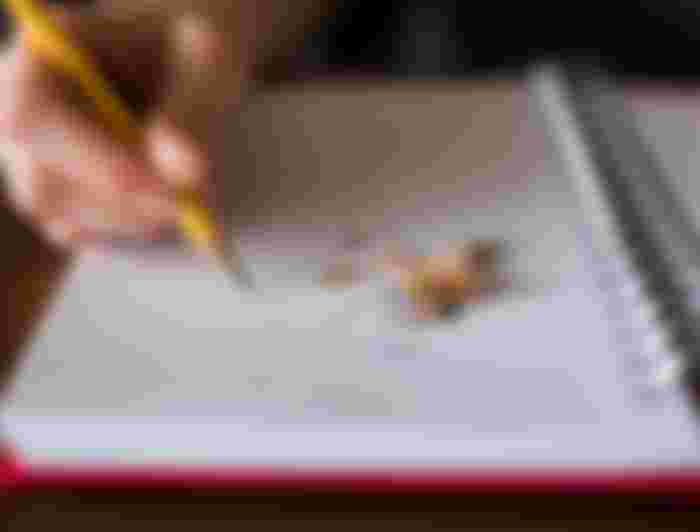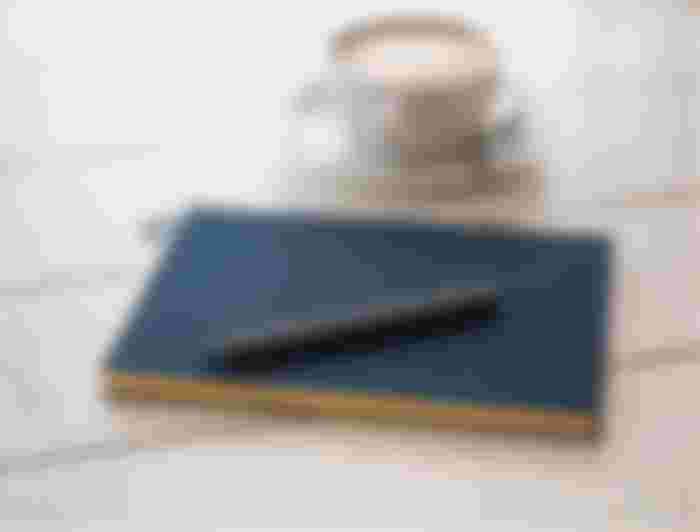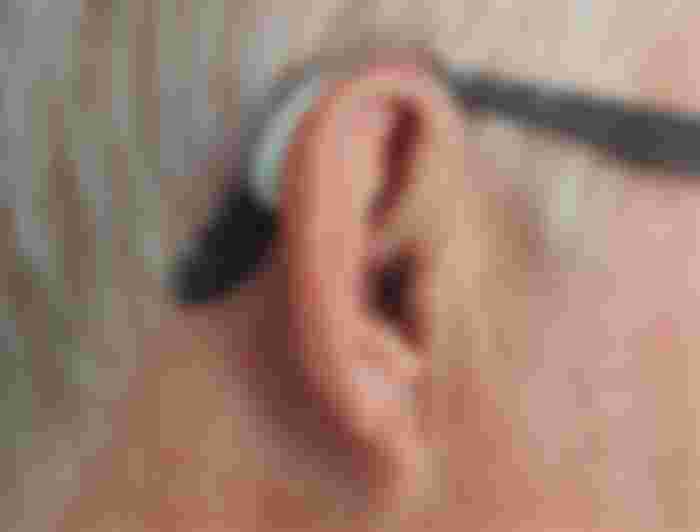Hi guys!
I've been reading a lot about people getting stuck, losing motivation, or finding it difficult to keep writing for to lack of subject matter.
Guess what? I'm here to help.
These 7 ideas will help you keep publishing every day.
Notebook
Journal
Dreams
Surf
Listen
Read
Write
Let's see exactly how each of these seven ideas will help you to publish every day.

Notebook
It's important to keep a notebook handy. Whether it is a spiral-bound paper notebook or a notes app on your phone.
The importance lies in being able to note down your observations of the world. For example, you are about to sit down to eat and you notice the pattern of the table cloth. You might start to wonder about this cloth. Who made it? What is their story? How did your family come by it? Is it old? Who designed the pattern?
All of these questions, each and every one of them, contain the information for an entire story. All you would need to do is write
tablecloth
And when you feel stuck for ideas, consult your notebook. Your questions - and their answers - will come flooding back into your mind.
If you are a writer like me, and most writers are, you have an incredible imagination. You are also a keen observer of the natural world.
Years ago when my youngest child was around 8 or 9, I was trying to demonstrate to him how easy imagining things is. We had several leaks in our roof which caused stains on the ceiling. My boy and I laid down on the floor and looked at the stains. We discussed what the shapes looked like and then told each other stories about them. One set of stains looked to me like a little girl being chased by a chicken. The story we created about this chicken was grand and vast and incredible.
The chicken had been bitten by a radioactive spider and got superpowers. But it didn't turn into spiderman. Instead, everytime it wanted to squawk or cluck, spiderwebs came out of its beak. This made the chicken very cranky. The girl noticed how cranky the chicken was and asked if it was ok. The chicken tried to answer, but all that came out was spiderwebs. This made the chicken even angrier so it started to chase the little girl.
If you've ever seen a chicken run, you'll know they often squawk while the flap their wings and run.
So the chicken ran and flapped and squawked and got all tangled up in its own web.
And the little girl got away.
The end.
So you see, just noting something down about water stains on the ceiling could give you a lot of fodder for stories.
Keep a notebook. Take notes. When you feel stuck, go back through them and something will jump out at you.

Journal
Keeping a journal, preferably but not neccesarily, by hand is an important daily habit for any writer.
I like to write a little bit in the morning and a little bit in the evening.
In the morning I write what I hope to accopmlish that day. I get very detailed sometimes and other times only write something like, "Finish dishes."
I read somewhere that setting down your intentions in writing helps to manifest them. Maybe, maybe not. But I do know writing even a few lines helps me get started with my day. And then in the evening I write about how my day went. Maybe something upset me or maybe I was proud of something that I accomplished. Maybe I'm feeling frustrated by my husband or my children. Maybe I'm just feeling really grateful.
It doesn't matter what you write in your journal. The act of writing daily, even about mundane things, will build a habit. The act of repeating something over and over actually builds nueral pathways in our brains. Creating a writing habit by journaling ensures you are working your writing muscles. And there is always the chance that you will find some awesome ideas for articles tucked away in your journal.
When you go back through your journals, pay attention to the things you felt and wrote passionaltely about. Underline those. You've got excellent writing material.

Dreams
Dreams are an excellent resource for writing material. And fold in nicely with journaling first thing in the morning. If you can start writing as soon as you wake up, you'll be more likely to remember your dreams.
This is what I dreamed the other night
I dreamed there was some sort of cult staying on our property. They were a very strange cult.They worshiped some sort of woman who would turn into a giant rabbit. They all saw the giant rabbit and worshipped it.
My husband was going to go with them on a retreat. I did not want him to go. I thought the rabbit woman would try to seduce him.
We (my husband and I) argued about it in the garage while simultaneously working to fix his truck. I looked out into the fron yard. He came and stood next to me. We both say the giant rbbit with lon, hairy ears - about the size of a small pony - staring at us from the front lawn.
My hisband said, "See?!" He turned to me , gesturing in the direction of the rabbit. He was going to go with these strange people.
I screamed, "NO!"
And woke up.
I don't know about you, but I can see an entire television series right there. A strange and supernatural one, but something that would be a Netflix Original! This was really a real dream I had. I've always had vivd dreams and some have stuck with me since I was very young. Dreams I had when I was very young; 6 or 7. Dreams I had when I was 10 or 11. And dreams I've had in my thirties. I worte a poem about a dream I had called "Spaceman and Bubble Gum Girl."
So you see dreams can really help those imagination juices flow.

Surf
Despite the picture, I don't mean ocean wave surfing. I mean internet surfing, of course.
Though I'm sure sufing in the ocean will stimulate your mind and give you many ideas (for example, writing about the green flash at sunset or the cute sea anemone you cut your foot on) I'm focusing on the world wide web for this one.
This idea can be combined with any or all of the ideas above. You can input one of the words you noted down into google seatch and see what comes up.
I looked up "tablecloth" and "news" and this gem appeared:
Woman creates replica of tablecloth heirloom accidentally donated to Downtown Women’s Center
Updated: Jun. 4, 2021 at 3:43 PM CDT
AMARILLO, Texas (KFDA) - A woman accidentally donated an heirloom cloth and another woman sewed a replacement, they will be meeting Monday, June 7.
Last year, one of Downtown Women’s Center’s faithful donors donated a room full of items and accidentally gave them a tablecloth that had been in her family for many years.
Once she realized it and contacted DWC about it, they learned it had already been sold.
They then made social media posts and fliers in hopes someone would return it, but no one did.
Wow! What a story idea. The tablecloth had been in the family for years. It was probably hand made.nWhat caused the woman to give it away in the first place? What impelled the other woman to recreate it for a stranger? They actually met! What was that like? What if they were actually long lost relatives? Oh, my gosh! Doesn't it just make your imagination go wild?
And that is the first entry I came across. I could surf more and find mor and write more.
Of course there is also the surfing for research purposes. Such as what a tablecloth even is. Or when tablecloths were first invented and by whom.
You get the picture. Surfing the internet for ideas and information is very helpful for writing.

Listen
There are so many ways listening is helpful to stimulate your writing muscles.
Are there older people in your life? I'll bet they have some great stories. Stories you can make your own by writing them down and even embellishing them.
Of course, if you don't have any great storytellers in your life, you can always get audio books. I like to listen to books while I do the dishes, laundry, or exercise. I often don't have time to sit and read. So listening to books, podcasts, or even the news gives me ideas. I sometimes note them down in my notebook.
Listening to music is an all around brain stimulation!
Experts are trying to understand how our brains can hear and play music. A stereo system puts out vibrations that travel through the air and somehow get inside the ear canal. These vibrations tickle the eardrum and are transmitted into an electrical signal that travels through the auditory nerve to the brain stem, where it is reassembled into something we perceive as music.
I just now surfed the internet to look up what music does to your brain. I found this brief article from Johns Hopkins. It is mostly about keeping your brain young. There are many more articles out there so, DYOR.
But from what I understand, music lights up the whole brain. Listening to music while learning something new, like painting, helps those lessons stick to your brain better.
Then there are the lyrics. Lyrics can trigger all kinds of moods and generate all kinds of images. The lyrics of a song tell a story. Stories by other people will help trigger your imagination. Take this line from Led Zeppelin's Black Dog, "I don't know, but I've been told. A big legged woman, ain't got no soul."
What does that line mean? How does the person know? There's a story there. In just that one line. Of course, if you listen to the entire song, you'll get Led Zepplin's version of the entire story. But you could also just take one line and create a whole new story from it.
Sometimes when I'm writing my book, I'll listen to the music the character I'm writing would listen to. One character, a serial killer who is very wealthy and snobbish, likes to listen to angry classical piano music. I'll listen to Rochmanav's most difficult piano concerto, "Rach 3" (skip to the 8 minute mark if you are impatient) while I'm writing Michael's character. What he does, how he thinks. It's very violent and chaotic, just like the concerto.
*note* I've started listening to it now. I just can't help it. It is one of my favorite pieces of music.
When I'm writing Alexandria, I listen to music from the 60s and 70s because that's what her dad and brother loved. They are both dead and she misses them incredibly, so she will listen to their music. I listen to it when I write her. It just puts me in the right frame of mind.
Another important "listen" is to listen to more experienced writers. Not every writer is the same, nor will every technique that works for one writer work for all, but experienced and successful writers often have a lot of wisdom to offer. It is always a good idea to listen. Take what you need and leave the rest.

Read
Where do you find all this experienced writer advice and wisdom? Well, you will probably have to read about it.
Reading their books, paying attention to their writing style, reading the foreword and the thank you pages, reading books on their writing techniques - all of these will help you be a better, more prolific writer.
It is also very important to read your own writing. Read those notebooks you've been keeping. Read your journal entries from months ago. Read your most popular articles and your least popular articles. Rewrite the least popular ones. Time and distance can often improve the outlook of a piece.
Don't be afraid to repeat your successes. Do you think @CryptoMax only writes about Bitcoin Cash one time? He is a successful blogger. He also know how to take his flops, rework them and turn them into successes. And to his successful stories and articles he will add more value and republish them months or even years after they were first published.
Trust me. Successful bloggers and writers have very unsuccessful stories and articles, but know how to rework the flops and recycle the wins. But in order to do this they have to be willing to go back and read their own work.
Reading is a great way to hone your writing craft. And another way to puclish every day.

Writing
Life often doesn't allow for us to write as often as we would wish to. But just because you can't write an article every day doesn't mean you can't publish one every day.
On the days everything is in place for you to sit and write one article, don't stop. Don't just write one. Write two. Write three. Save the extras for those rainy writing days when writing isn't possible.
I used to do this much more than I do now. I find I'm stretched a little thin these days. But just think if I had taken my own advice starting years ago. I'd have so many articles and stories stored up.
At this point in my writing career it isn't imperative that I publish daily. I am happy to publish several days a week and use the other days to write my book, work for money as a personal assistant, edit The Bad Influence, a publication on Medium, paint, cook, and spend time with my animals.
But for those of you who really feel the need to publish every day, writing two or more articles at a time would be much better able to do so.
Writing in little chunks of time is another way to get those articles written. Take your notebook with you wherever you go. If you find a few moments at work, instead of looking at your phone, write a paragraph or two.
Even if you can't bring your notebook, you likely have the ability to write on your phone using Word or Google Docs. Later, you can simply transfer that onto your blog.
When my kids were little, I used to use my bathroom breaks as a place to hide out for 5 or 10 minutes. You can actually get a lot written down in 5 minutes just sitting on the pot.
When I was in the workforce, I quickly learned how to eat with one hand and write with the other. When everyone else was chatting during their smoke breaks I was busy writing.
My husband would hang out with the kids and I would go to a coffee shop for an hour or two or three to write.
If I took a bus or a train or rode as a passenger in a car, I would be writing.
I have actually written while I was driving, but I do not recommend this because it is dangerous and you probably won't be able to read what you wrote, anyway. As someone who spent a lot of time on the phone in a law office, I learned how to write without looking at the pad of paper. But in the office, I wasn't having to pay attention to keeping my car between the lines. So, don't do that.
Writing whenever and wherever you can, even just a paragraph or two, will help you write two or more articles/stories at a time.
I hope these 7 suggestions help you publish every day. Thanks for reading!
All images, including the lead image, license free from Unsplash.







Very good article and excellent ideas to start writing.I am not much of a writer, I like to read books, but it is always good to have a skill like writing, where you stand and where you go to capture your thoughts and desires on a page and these transform them into stories or tales perhaps even books should be worldwide. Now as I am trying to fit in this world of Read.Cash I will start practicing my writing using the tools you share with us, thank you very much.